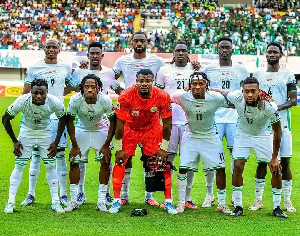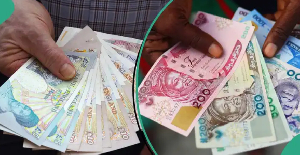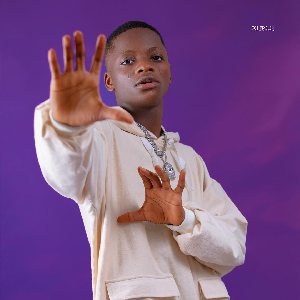A Federal High Court in Owerri will sit on Wednesday (today) in the hearing of a fundamental rights enforcement suit filed by former Nigeria U-17 striker Mbetobong Ibanga against the Nigeria Football Federation.
The case, with suit number FHC/OW/FHR/30/2025, came up for a definite hearing on Tuesday, June 22, but the NFF was absent from court and was not represented by counsel.
According to a status report from Ibanga’s lawyer, Hon. Barr. Ephraim Okafor, the court ordered that a fresh hearing notice be issued and served on the NFF following their absence despite the matter being fixed for a definite hearing.
“The case came up for definite hearing as earlier scheduled. However, the Respondent (NFF) was not in court and was not represented by counsel,” the lawyer stated in the report to his client.
When contacted for comment, NFF president Ibrahim Gusau denied knowledge of the legal action.
“I am not aware of that,” Gusau told our correspondent.
Ibanga, who represented Nigeria in the 2011 CAF U-17 qualifiers against Congo, is seeking an order to enforce his fundamental rights to dignity following alleged mistreatment by the football federation after he sustained a career-ending knee injury whilst on national duty.
The former striker claims he was abandoned by the NFF after suffering the injury during preparations for the tournament, which led to his discharge from the national team for underperformance rather than receiving proper medical treatment.
According to court documents, Ibanga sustained the knee injury on August 29, 2010, during Nigeria’s U-17 match against the Republic of Congo. The injury severely affected his efficiency and performance, eventually forcing him to use crutches and later a wheelchair.
Rather than sponsor his treatment, the NFF discharged him for underperformance, according to his affidavit. He later underwent orthopaedic knee surgery at the University College Hospital, Ibadan, under the sponsorship of then Kwara State Governor Bukola Saraki and the director of Kwara State Football Academy.
The surgeon advised him to quit football or risk losing his entire leg, effectively ending his career. Ibanga states in his affidavit that the knee injury has resurfaced, causing him severe pain and mental anguish on a daily basis, making him unable to ascend a staircase without external aid.
The legal action stems from a harrowing encounter Ibanga had with Gusau at the NFF headquarters in Abuja in November 2024. During the visit, which was meant to seek support for his medical condition, Ibanga alleged that Gusau ordered security personnel to physically assault him.
“I told him my career ended whilst playing for Nigeria. He replied that even the government doesn’t give them money to treat Super Eagles players, let alone someone like me,” Ibanga recounted in an earlier interview.
He claimed that when he insisted on some form of support, Gusau lost his temper and “ordered his personal security to push me out. I almost fell, and no one cared if my injured leg was hurting. I was treated like a dog. Then he told the gate security to throw me out.”
Ibanga’s story gained national attention following a Saturday PUNCH report in May 2023, which highlighted his plight as he worked as a butcher in Calabar, Cross River State, to support his widowed mother and younger sister.
Following the media attention, the Cross River State Government and several individuals rallied around him, enabling him to establish the Hope Regeneration Outreach, a secondary school football training centre. He also completed his degree at the University of Calabar with support from the institution’s vice-chancellor and other officials.
Despite these positive developments, Ibanga’s legal battle with the NFF continues.
In his written address to the court, Okafor described the NFF’s neglect as “infamous, dastardly and unconscionable. It is despicable and dehumanising. The respondent has to be held accountable for this misdeed.”
The case is being heard under the Fundamental Rights Enforcement Procedure Rules 2009, Section 34 of the Constitution of the Federal Republic of Nigeria 1999 (as amended), and Article 14 of the African Charter on Human and Peoples’ Rights.
The matter will resume on July 16, 2025, for a definite hearing at the Federal High Court, Owerri.
Sports News of Wednesday, 16 July 2025
Source: www.punchng.com













